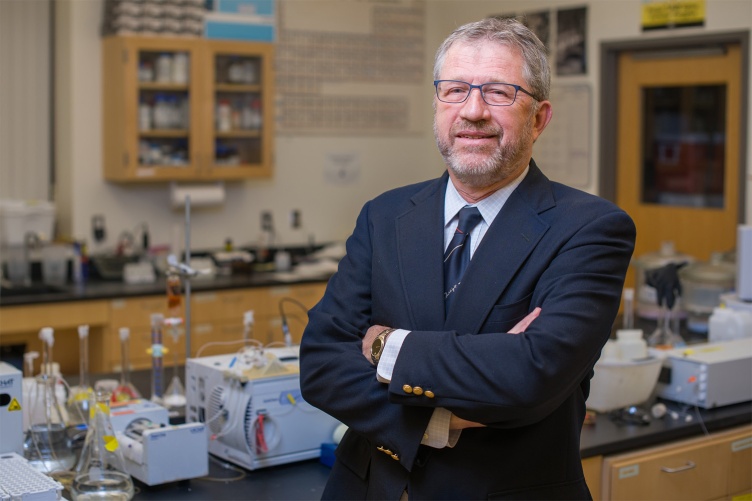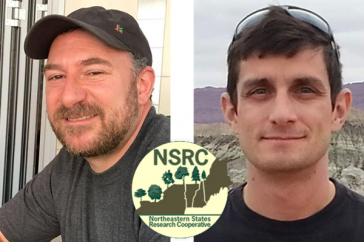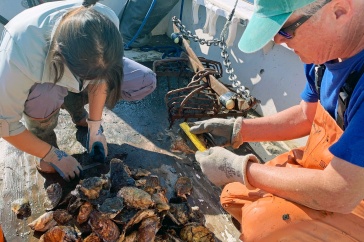
UNH professor emeritus William McDowell was recently named a 2024 fellow by the Society for Freshwater Science.
UNH Professor Emeritus of Environmental Science William H. McDowell was recently named a 2024 Fellow of the international Society for Freshwater Science (SFS) for his research contributions to aquatic science. McDowell, whose teaching and research career spans more than four decades, serves as the director of the New Hampshire Water Resources Research Center. His research examines the impacts of land-use changes, hydrological flows, droughts and extreme weather events on stream chemistry and other ecological processes.
“International collaboration is critical to developing global models of how streams function,” said McDowell, who also serves as a research professor at Florida International University. “Some of the largest changes in streams and rivers can best be observed in remote regions such as the permafrost terrain of Siberia. Furthermore, working closely with international colleagues brings new ideas and new perspectives to our understanding of how streams and rivers function.”
McDowell’s research career has led him to Puerto Rico, Siberia, the Czech Republic, and throughout New England. One of his New Hampshire projects is a long-term study of the Lamprey River watershed and its impacts on the Great Bay Estuary. McDowell and his team have studied the effects of growing suburbanization within the Lamprey River watershed and how it’s impacted water chemistry and nutrient discharge within the Lamprey River and in Great Bay.
McDowell leads another long-term study in the Sierra de Luquillo Mountains of eastern Puerto Rico. This research, which leverages more than 40 years of weekly water chemistry data from several of the Luquillo Mountain’s rain forest streams and rivers, is the longest-running study of tropical stream chemistry on earth.
McDowell added, “Important insights can be gained by working across a range of environments such as New Hampshire and Puerto Rican watersheds. For example, in both environments, high stream flows increase the concentrations of some solutes and dilute others.
“This has important implications for understanding of flow regime and extreme events on delivery of sediments and nutrients to sensitive coastal waters. And it’s important for developing models that predict how land-water connections and global carbon budgets will change in response to the increased frequency of extremes.”
Founded in 1953, the SFS is an international organization that works to share knowledge about freshwater ecosystems with the public, policymakers, educators, and more. SFS members study freshwater organisms, biotic communities and physical processes that affect ecosystem function, links between freshwater ecosystems and surrounding landscapes, habitat and water quality assessment, conservation, and stewardship.
Learn more about this achievement on the Society for Freshwater Science website.
-
Written By:
Maeve Gifford | UNH College of Life Sciences and Agriculture | Maeve.Gifford@unh.edu


















































